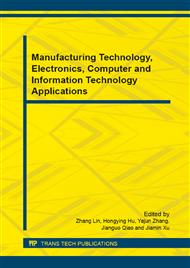p.3166
p.3171
p.3175
p.3179
p.3183
p.3187
p.3191
p.3195
p.3199
Optimize OpenFOAM from the Compiler Perspective
Abstract:
OpenFOAM is a widely used open source computational fluid dynamics (CFD) , and the performance of its application is critical for the CFD user, and many researchers try to optimize it from various perspectives. In this paper, we try to optimization OpenFOAM application from the compiler perspective, which is the simplest way to get the optimization affect. We compare two mainstream compilers: Intel compiler icc and an open source compiler, as well as a serious of optimization option flags. Through the experiment, we find that Intel compiler has a much better performance than gcc, which is up to 9.88%, and a suitable combination of the optimization option flags is important to the compile performance.
Info:
Periodical:
Pages:
3183-3186
Citation:
Online since:
November 2014
Authors:
Keywords:
Price:
Сopyright:
© 2014 Trans Tech Publications Ltd. All Rights Reserved
Share:
Citation:


